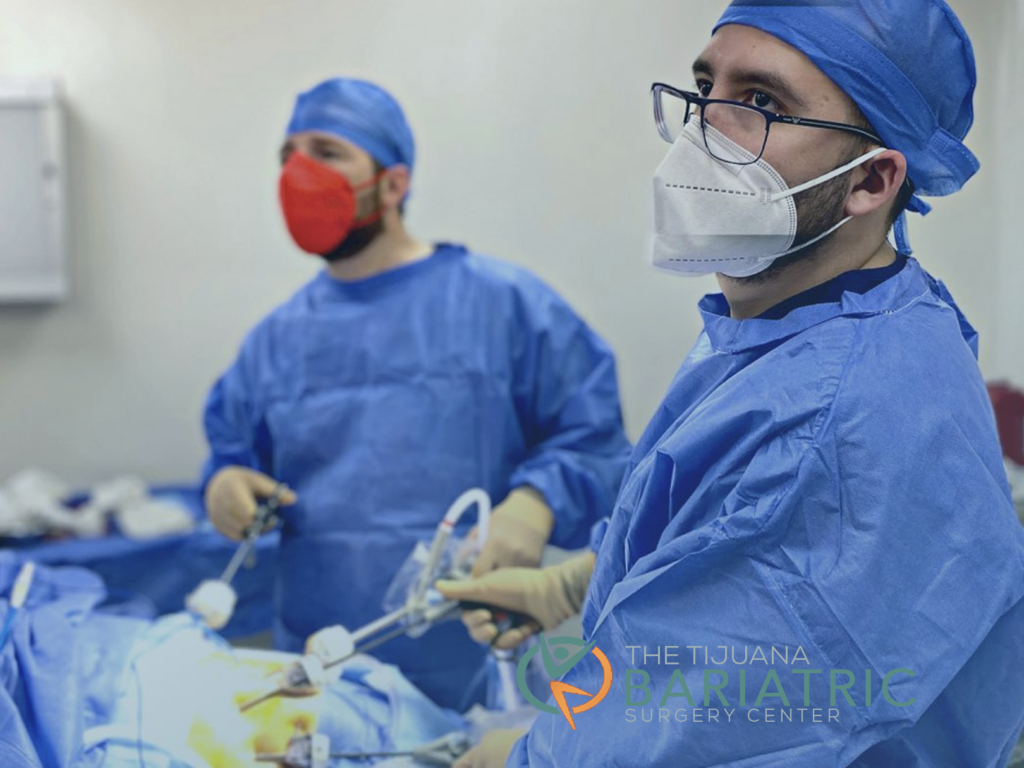Surgery for weight loss is not a miracle solution, but an effective tool to promote weight loss after diets, exercise, and medical weight loss programs have failed to achieve significant and lasting weight loss in severely obese individuals. It is medical surgery, not cosmetic surgery.
If you are looking into weight loss surgery, you will find there are several popular procedures being performed with successful results. Weight loss surgery encompasses a variety of procedures and is not a one size fits all solution, making it important to gather information and learn more about the various weight loss surgery options before making a decision.
Weight loss surgery is not for casual weight loss or for those who are looking for an easy way to lose weight. It is an effective and long-lasting treatment for individuals who have struggled with severe obesity but have been unable to reach a healthy weight through non-surgical methods.
The top four bariatric procedures:
- Roux-en-Y Gastric Bypass
- Bariatric Revision Surgery
- Sleeve Gastrectomy (Gastric Sleeve)
- Duodenal Switch
Before making a decision, individuals should carefully consider the alternatives and the lifelong changes that will be required after weight loss surgery. It is important to take into account both the short term and long term effects of each procedure in regards to diet, nutrition, lifestyle changes, pregnancy, initial weight loss, and long-term weight management.
How Weight Loss Surgery Works
There are several different surgical procedures, but only two basic methods of promoting weight loss:
- food restriction – restrict food intake to reduce calories consumed
- food malabsorption – alter digestion to reduce absorption of calories through the intestine
Restrictive Methods of Weight Loss Surgery
The goal of restrictive weight loss surgery is to reduce the amount of food that an individual eats in order to promote weight loss. This is accomplished by creating a smaller stomach pouch that holds less food than a normal stomach. The restructured stomach helps an individual control meal portions and reduces hunger sensations.
The primary restrictive methods of weight loss surgery are:
With laparoscopic adjustable gastric banding, a band is placed around the upper portion of the individual’s stomach. The band divides the stomach into one larger and one smaller portion.
The advantages of restrictive bariatric surgery include: a healthy and steady rate of weight loss, low risk of nutritional deficiencies, less hunger, and portion control.
The possible drawbacks of restrictive bariatric surgery include: lack of satisfaction with eating, the necessity of individual to make healthy eating choices, and unsatisfactory weight loss.
Malabsorptive Methods of Weight Loss Surgery
The aim of malabsorptive weight loss surgery is to promote weight loss by altering digestion. It involves cutting and rerouting the small intestine so that food bypasses a portion of the digestive system. As the normal function of the small intestine is to absorb nutrients from food, a shorter digestive tract results in less food absorption and thus less calories being retained by the body.
The primary malabsorptive methods of weight loss surgery are:
- Biliopancreatic Diversion with Duodenal Switch
- Extended (distal) Roux-en-Y Gastric Bypass
The advantages of malabsorptive weight loss surgery include: high degree of hunger fulfillment and high rate of success with excess weight loss and long-term weight management.
The drawbacks associated with malabsorptive weight loss surgery include: lifelong need for vitamin supplements, bowel movement problems, bloating, flatulence, risk of nutritional deficiencies, intestinal irritation, gallstones, and gallbladder problems.
Combination Restrictive and Malabsorptive Procedure
The most commonly performed type of weight loss surgery involves both a restrictive and malabsorptive aspect:
- Roux-en-Y Gastric Bypass (proximal)
With gastric bypass surgery, the size of the stomach is reduced to limit food intake and the first section of the small intestine is bypassed to reduce food absorption.
Gastric bypass surgery has been performed since the 1970’s and is accepted by most bariatric surgeons and insurance companies as an effective treatment for morbid obesity.
As for advantages, weight loss is generally quicker and greater than seen in individuals undergoing solely restrictive surgery, but drawbacks include risk of nutritional deficiencies and dumping syndrome.
Choosing the Best Weight Loss Surgery Option
If you have struggled with obesity and are looking into your bariatric surgery options, discuss the various alternatives with your bariatric surgeon before making a decision. Take the time to consider the pros and cons of gastric bypass surgery, as well as the advantages and drawbacks of gastric bands and the gastric sleeve surgery. If you have an extremely high BMI, then you may want to consider the duodenal switch, either as one operation or as the second part of a staged procedure with sleeve gastrectomy.
At Bariatric Surgery Tijuana they are dedicated to providing the highest quality of surgical weight loss management in a caring and compassionate setting.




One thought on “Surgery For Weight Loss”